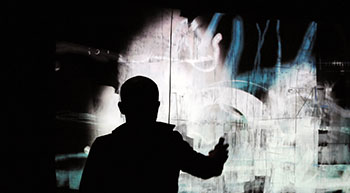 Like many, I was born in a time when television was king, where mobile phones and the internet didn’t exist, and I played on my Atari 1040STF that emulated Mac OS. Since then, things have changed significantly. TV has become 4K or higher, managing the latest TNT technologies. It has become a mini-computer connected to the web. To be honest, TV programs no longer interest me. I much prefer streaming via Amazon Prime and Paramount+, which allow me to access programs I enjoy with often impeccable quality. I can even find classic films from the black and white era or watch movies from directors like Dario Argento, Spielberg, and others.
Like many, I was born in a time when television was king, where mobile phones and the internet didn’t exist, and I played on my Atari 1040STF that emulated Mac OS. Since then, things have changed significantly. TV has become 4K or higher, managing the latest TNT technologies. It has become a mini-computer connected to the web. To be honest, TV programs no longer interest me. I much prefer streaming via Amazon Prime and Paramount+, which allow me to access programs I enjoy with often impeccable quality. I can even find classic films from the black and white era or watch movies from directors like Dario Argento, Spielberg, and others.
Upon reflection, I don’t miss TV and its formatted programs. The news is also too formatted and extreme for my taste. I prefer reading online from publications like Le Monde Diplomatique or The Washington Post, which offer in-depth subjects perfectly covered. Whether I agree or disagree with an article, they at least provoke thought. In the end, I have gained a lot. Being passionate about the arts and society, like many of you, I have created my own personalized media universe. I no longer have to endure endless advertisements or let my brain be consumed by 24-hour news channels that in Europe, and particularly in France, are too closely aligned with the far right and propagate its principles and ideas.
The best directors have invaded streaming platforms. Some may cry scandal, but personally, I believe we are experiencing a cultural evolution, as there have been in the past, and this is the natural course of things. Let’s think for a moment: where else can we find high-quality documentaries about Miles Davis or any other influential artist? It’s on streaming platforms that we find such content. TV on TNT has completely abandoned culture, but streaming reconnects us with that essential part of ourselves—the art. Without art, there is no reflection, joy, dance, or communication. It is this ability to feel and create art that shapes our consciousness, emotions, and relationships with others.
The further we move away from TV, the simpler our time management becomes. No longer do we need to be present at a fixed time to watch often mind-numbing and uninteresting programs. We have more time for ourselves, for others, for reading, going to the theater, concerts, or wherever else.
Like any progress towards a form of modernism, this also brings its share of demands, as we see in the big studios where authors have been demanding fair compensation for months. The more content we create for streaming, the more we need authors, preferably very talented ones. So, it’s only natural to pay them according to what we expect and love—real scenarios with well-developed characters come at a cost!
Let’s not mourn what we have lost; let’s rejoice in progress, which, if managed properly, is an intellectual and societal emancipation.
Thierry De Clemensat
Editor in chief
Bayou Blue Radio/Bayou Blue News